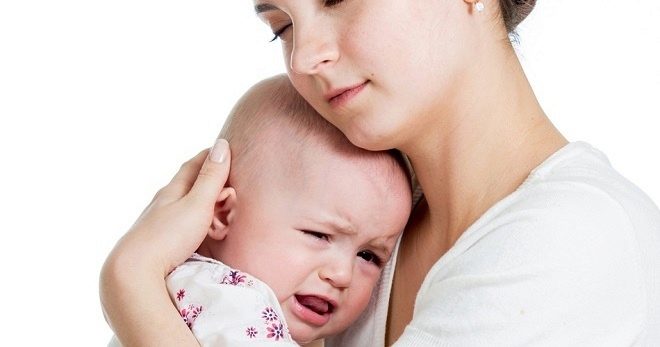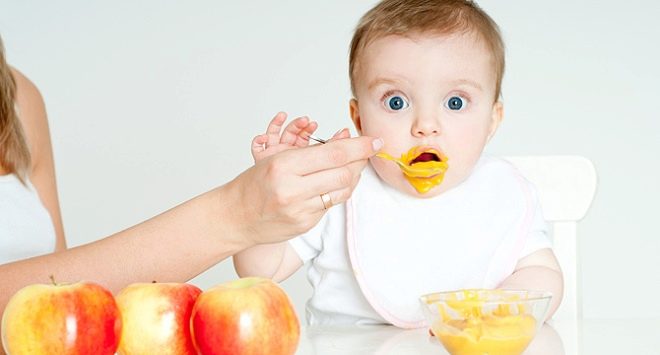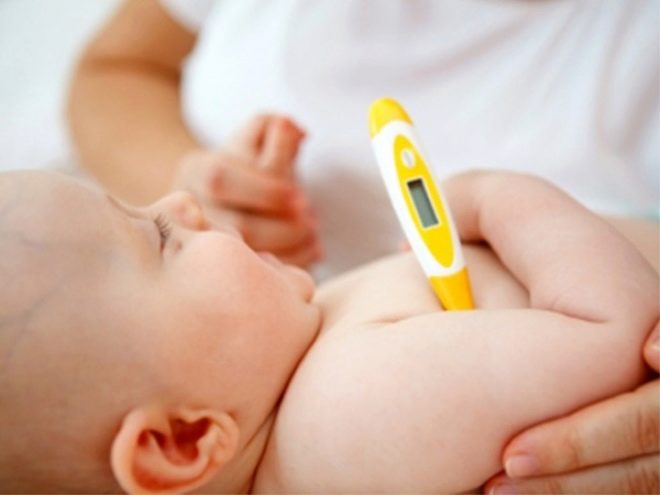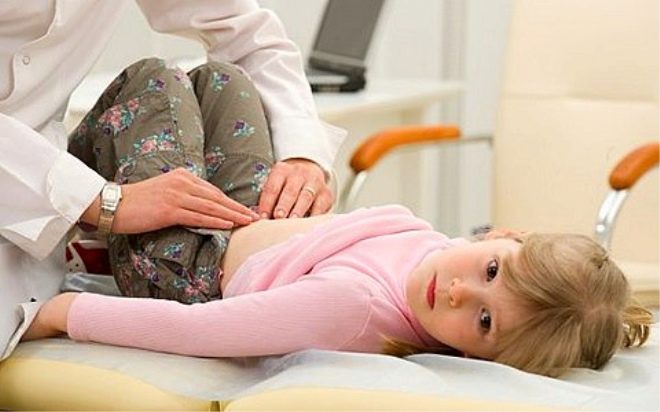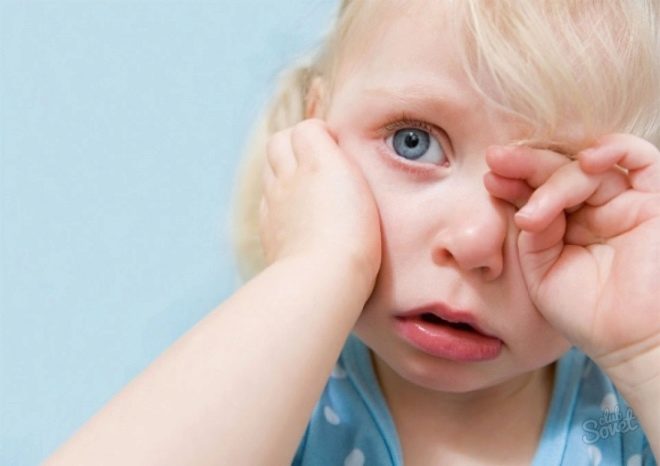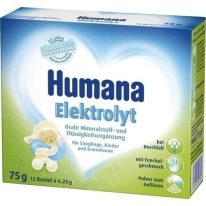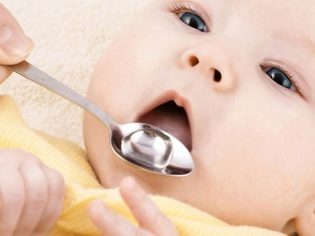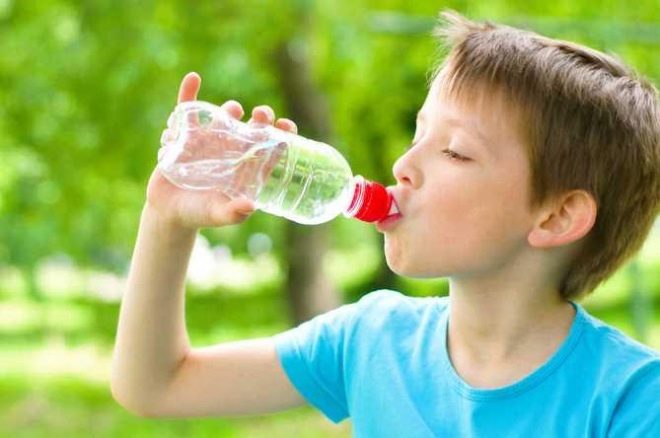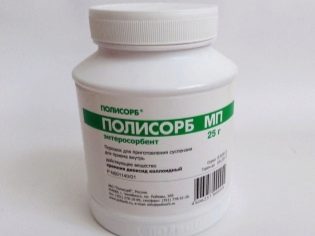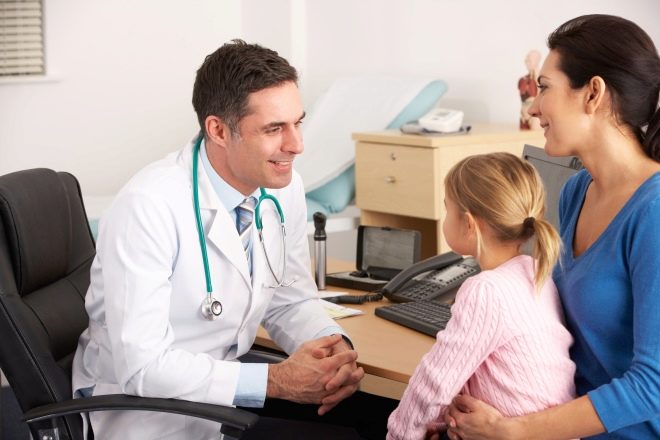What to do if the child is sick?
Nausea in a child of any age is a widespread phenomenon. The digestive system of children is imperfect, it is still undergoing a period of physiological "debugging", and the vestibular apparatus is weak. But the biggest changes occur in the nervous system, and it somehow regulates both digestion and position in space. Any minor failure in this interaction ends with the occurrence of nausea, and sometimes vomiting. What to do if the baby is often sick, we will tell in this article.
Special features
Nausea in medicine is a condition in which a child experiences discomfort pressing in the epigastric region and in the throat. Very often, the feeling of nausea in children ends with bouts of vomiting. There is a special section of science that studies these two unpleasant phenomena - emetology.
Nausea is not a disease. It is just a symptom, which speaks of some violations in the body. Nausea and vomiting - protective mechanisms that allow the body to get rid in time of unwanted food or harmful substance that has been ingested with food or medicine.
Nausea during any infectious disease helps the body to reduce the energy costs of digesting food and send them to the immune defense.
However, the symptom itself is rather unpleasant and painful for the baby. If he provokes a prolonged and uncontrolled vomiting, then it is also a very serious danger to the life of the toddler. That is why it is not necessary to put up with nausea and vomiting. If the child has a tendency to nausea, measures should be taken that will reduce the frequency of attacks to a minimum, and then stop them altogether.
Causes and symptoms
Binge eating
Very often, parents, worrying about whether the child is eating up, simply overfeed him, literally forcing him to absorb completely non-children's amounts of food. It should be understood that the size of the child's stomach is much smaller than the size of this organ in adults, and therefore the baby’s digestive capacity is limited. If he is fed more than he is able to digest and assimilate, a short time after eating a feeling of severe nausea and vomiting begins.
Most often this occurs in newborns and in children of the first year of life. In infants, overeating can cause not only indigestion, but also skin rashes, sleep disturbance.
Poisoning
Poor quality or expired food can cause food poisoning. In this case, nausea does not appear immediately. First, the child manifests weakness, headache. Within 1.5-2 hours after ingestion of poor-quality food, the first signs of nausea appear with subsequent vomiting.
This time is required so that the bacteria that got into the digestive tract along with the food could begin to multiply and release into the child's body the products of their vital activity that cause intoxication.
There may be a rise in body temperature to 37.0-38.0 degrees. Diarrhea does not happen with every food poisoning.
Intestinal infections
Diseases can be caused by both bacteria and viruses, for example, rotavirus, and more rarely enterovirus.The vast majority of pathogens invade the child through dirty hands, household items, with poorly washed vegetables and fruits, with drinking water. Airborne transmission is much less common, and mostly only some viruses use it.
The onset of the disease is always associated with the appearance of weakness, the child begins to complain of constant persistent nausea. At the same time, symptoms associated with disturbances in the nervous system are developing - the child becomes moody, noisy, or, conversely, sluggish and apathetic. The temperature rises, sometimes to 38.0-39.0 degrees, pronounced vomiting and diarrhea appear.
Acute viral infectious diseases
Nausea quite often accompanies viral ailments that in no way affect the organs of the digestive tract. These include influenza and parainfluenza, acute respiratory viral infections, acute respiratory infections, enterovirus infection, measles, chickenpox, herpes infection. The child begins to complain of nausea in the midst of the disease, after the appearance of the first and most pronounced symptoms - high body temperature and respiratory symptoms - cough, runny nose, watery eyes.
Nausea and vomiting are characteristic of viral diseases that are severe and moderate. The causes of nausea in this case lie in ridding the body of everything that requires energy expenditure, since it tries to throw all its strength into the immune response of the virus.
By the way, children, who were sick and vomiting at the beginning of the disease, and who then do not get food again, recover much faster. Diarrhea with ARVI almost never happens.
Dangerous diseases requiring emergency care
Nausea always accompanies the internal pathology of the abdominal organs. Thus, appendicitis always begins with the simultaneous appearance of nausea and abdominal pain, severe persistent nausea accompanies the threatening rupture of the spleen. In most cases, the combination of acute or nagging pain with nausea is a situation that requires calling an “emergency room” and early hospitalization of the child for urgent surgical intervention.
Road nausea
This is a symptom that causes motion sickness when traveling by car, train or plane. He is given a separate name - kinetosis or seasickness. At the age of 2 to 12 years with manifestations of kinetosis, more than 60% of children are found.
It is believed that if a baby is swayed while the child is riding, temporary impairment of the inner ear, where the vestibular apparatus is located. As a result, the brain receives the wrong signals about the position of the body in space. The mechanism of nausea in this situation and sometimes vomiting arising after it has not yet been fully studied.
Foreign object
In small children who are still pulling into their mouths, this cause of nausea is far from uncommon. Accidentally swallowed object irritates the esophagus. Nausea appears within a few minutes after swallowing, vomiting after a few more seconds. For the appearance of the symptom, it is important that the foreign body is large enough, small objects are ingested unnoticed and do not cause nausea.
CNS lesions
A child with lesions of the central nervous system is sickeningly painful, and vomiting does not bring relief. The symptom often accompanies encephalitis or meningoencephalitis. The temperature rises to high values, there are headaches, photophobia develops. Perhaps the appearance of convulsions, loss of consciousness, delirium. Nausea also accompanies a variety of head injuries.
Strong stress or other nervous factors.
This nausea, which occurs in most cases only in children. Nervous vomiting in adults is rare, but in childhood it, according to statistics, affects from 30 to 60% of babies. “To stir up” the toddler may, after experiencing a strong fear or fear, after a scandal that broke out before his eyes and which he could also become a participant.This is a reaction of the nervous system, a kind of response to a psychological irritant that caused a jump in stress hormones - cortisone and adrenaline.
Some guys may have complaints about nausea after running or active playing, after a sudden change of environment or due to heightened anxiety, anxiety.
Vomiting does not always occur, and in most cases you can cope with such nausea by simply calming the child, supporting it.
Morning sickness
Nausea on an empty stomach in the morning can be directly related to the feeling of hunger. If the smell of acetone from the mouth is not observed, acetonemic vomiting does not occur, then such a symptom should not be of particular concern. It is enough to feed the child, and uncomfortable sensations in the epigastric region will cease. If a child often complains that he feels sick after breakfast, then This is an unconditional reason for referring doctors to a neurologist and a gastroenterologist.
How to help?
If the child complains of nausea, it is recommended:
- With nausea without other symptoms. Reassure the child, take him outside or provide fresh air, breathe deeply with him. When the first wave recedes, give the child a drink of water in small sips. If food poisoning is suspected, the stomach should be flushed. Give the child plenty of warm water to drink, and then induce vomiting.
- With nausea and vomiting with fever. Put the child in bed, preferably on its side, so that it does not choke on vomit. Call an ambulance, and in anticipation of the doctor give the child a lot of drink. It is best to water it with oral rehydration solutions - “Regidron», «Smecta, Humana Electrolyte.
If the baby refuses to drink, it is necessary to use a teaspoon or syringe without a needle, pouring the solution into his mouth in small amounts, but constantly. The temperature should be given an age dose of paracetamol-based antipyretic.
- With nausea and vomiting without fever. A single seizure of vomiting should not cause great concern to parents, this happens even with perfectly healthy children due to the immaturity of the nervous system. However, repeated attacks - a reason for seeking medical attention. You should not give any medication, except solutions to replenish water and salts in the body - "Rehydron", eg. The child must be delivered to a hospital or call an ambulance.
- With nausea and diarrhea. If the causes of nausea and diarrhea are unknown, then you should not give medicines. As a first aid, you can give warm rice water, warm sweet tea. If diarrhea continues, and the child is “sore”, you should take him to the doctor’s appointment or call an “ambulance” that will take the baby to the infectious hospital.
- When nausea in transport. If the child does not tolerate the journey, you need to take care to prevent nausea in advance. Before setting off, the child may be served with warm tea, but in small quantities. You should take a bottle of drinking water with you so that the child at the first sign of nausea can drink it in small sips, as well as mints.
Today there is a large selection of various means of motion sickness in transport, and if water in small sips and mints do not help, you can give the child pills for motion sickness, as well as buy a special motion sickness bracelet that acts on acupuncture points, suppressing unpleasant symptoms preceding vomiting.
The child should be dressed in such a way that at any moment it is easy to remove the stained wardrobe item and replace it with a clean one. You should take the package with you if the child is unable to cope with nausea and vomits.
Drugs to eliminate nausea
All drugs that can suppress the gag reflex, as well as normalize the activity of the digestive tract, can be given to the child only with the permission of the doctor and after the causes are identified.The modern pharmacological industry offers a large selection of antiemetic drugs. In pediatrics, the most common sorbents:
- «Activated carbon»;
- "White coal";
- «Smecta»;
- Polysorb;
- «Enterosgel».
Children under 2 years old can be given "Motilium"In suspension, after 2 years -"Zeercal". A child 2 years old and younger can use “No-spasm” and “to combat nausea.”Domperidone". Children from 5 years old are allowed such drugs as "Loperamide"And"Imodium».
From the motion sickness in transport, according to parents, it helps well "Dramina"," Kokkulin ", and school-age children -" Avia-More ". All of these drugs are classified as homeopathic, so skeptical parents are not recommended. It is better for them to take a prescription for a complete medicine from their doctor - "Relanium"Or" Prazepam.
Prevention
Preventive measures to prevent an unpleasant symptom are quite extensive and cover all areas of the life of the toddler. To reduce the risks will help simple tips that should be followed systematically:
- It is not necessary to overfeed a small child, it is especially dangerous to insist on eating when the baby is sick. At older ages, the possibility of overeating should be excluded.
- To buy a child you need only quality products. You should always be interested in the expiration date, the composition of food products, the manufacturer.
- With the growing popularity of discounts in grocery stores, the number of children's food poisonings has only grown, for often they sell products for which expiration or expiration dates have expired, as well as products that were improperly transported or stored in violation of the requirements.
- Vegetables and fruits should be washed thoroughly before giving to the child, and the meat and fish should be cooked, baked, and fry until ready, without allowing the raw fragments, which have not undergone proper heat treatment, to remain.
- All preventive vaccinations should be done on time. This will help avoid infection with dangerous infectious diseases. And even when infected, vaccinated children get sick more easily, the likelihood of dangerous complications for them is minimal.
- Immunity should be strengthened from the very birth of a child. To enhance the natural protection, it is important to walk in the fresh air, eat a sufficient amount of vitamins, harden the child, and encourage sports.
- Night sleep should be long enough, and day classes should be planned in accordance with the daily routine. Digestion is always better for those children who eat not when they want it, but according to a certain regimen.
- When sea sickness is to use special tools, and do it in advance (for an hour or two) before departure or departure.
- Psychological problems of the child should be given no less attention than his diseases, because the nervous factor is the basis of so many childhood diseases.
Parents should do everything possible that the child was surrounded by love and care, did not hear scandals and did not witness family scenes. Only a normal microclimate will help prevent nausea caused by stressful situations.



